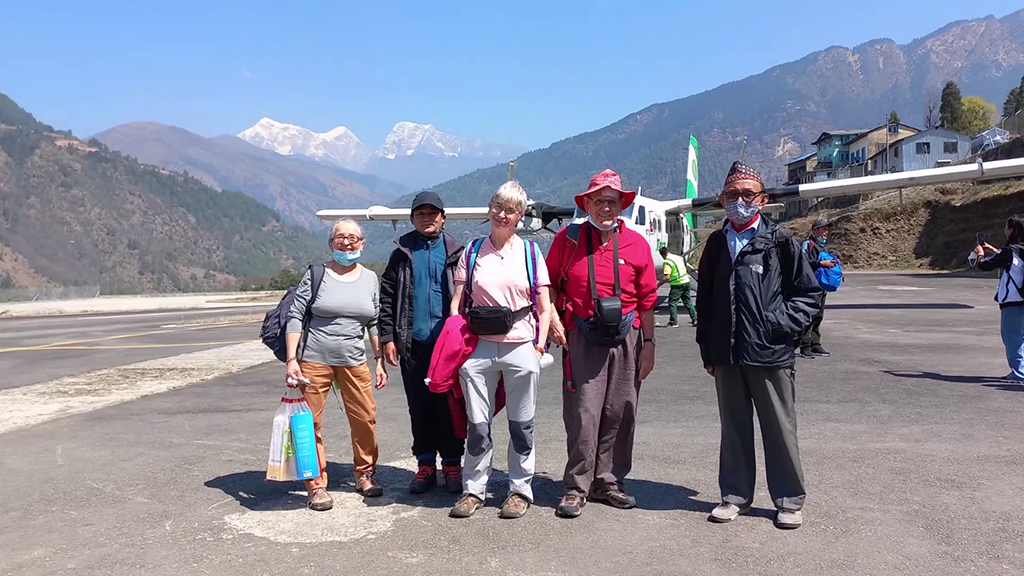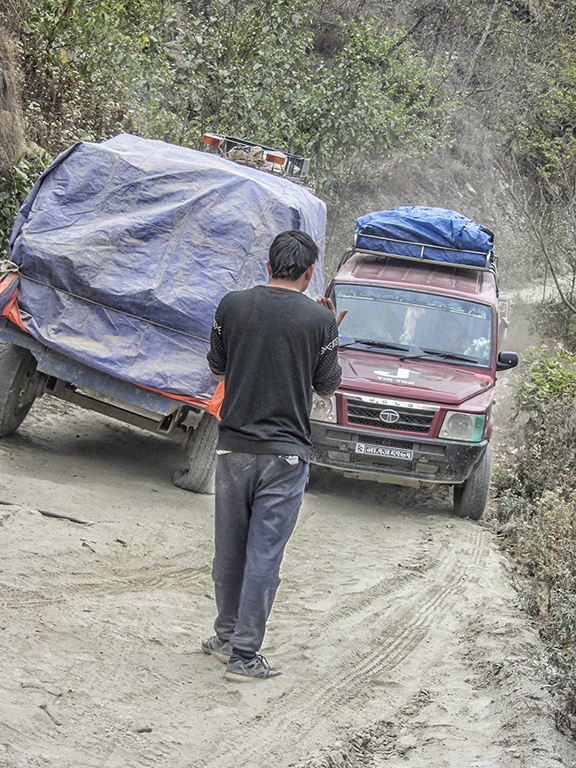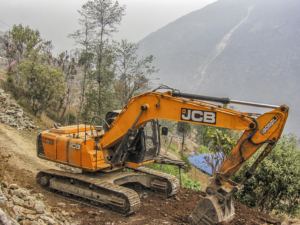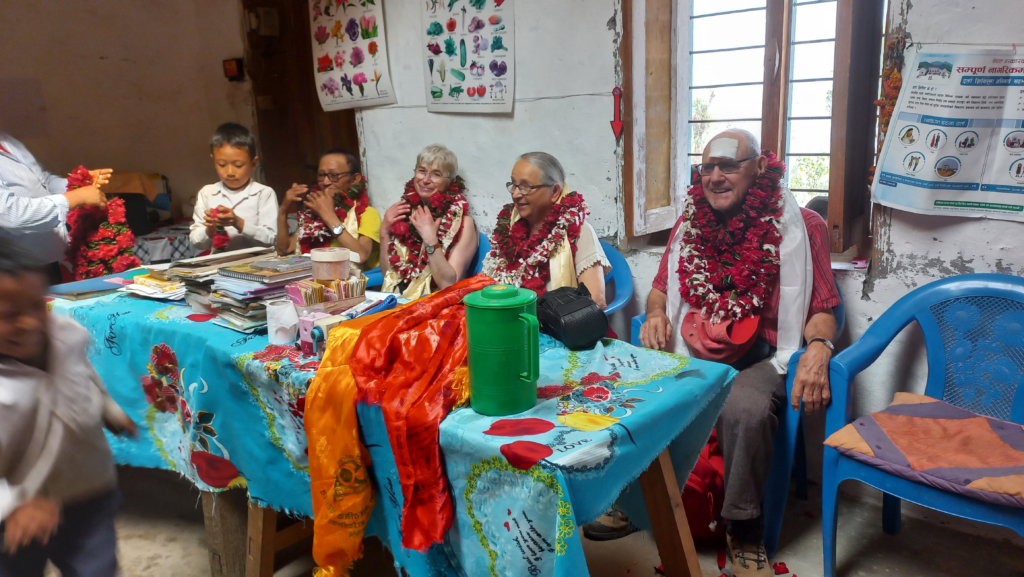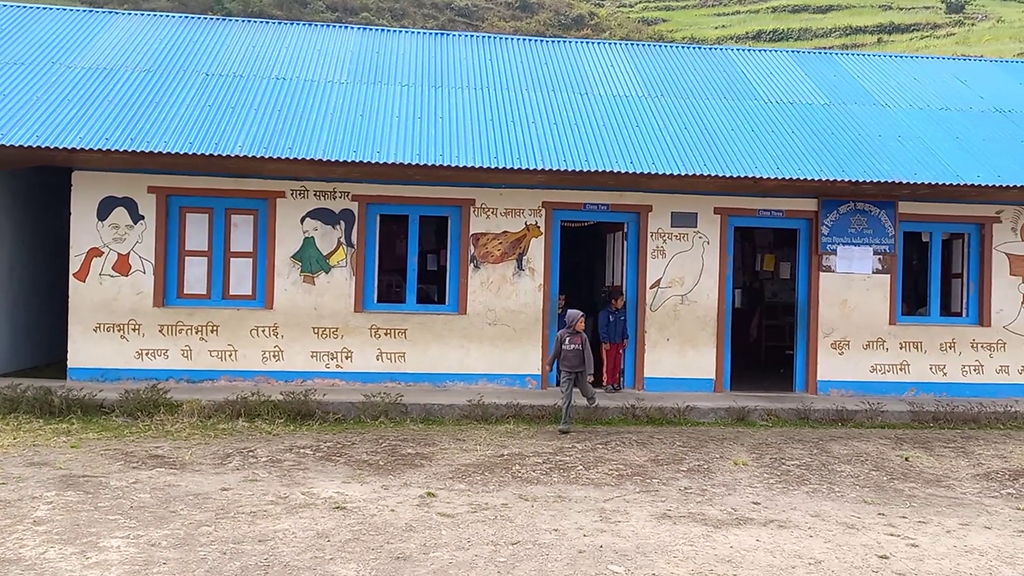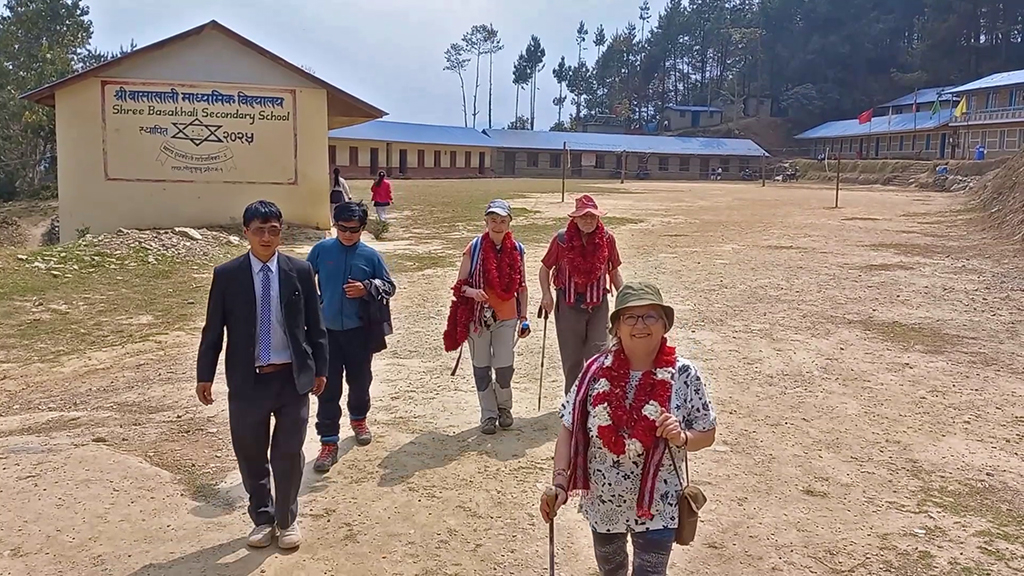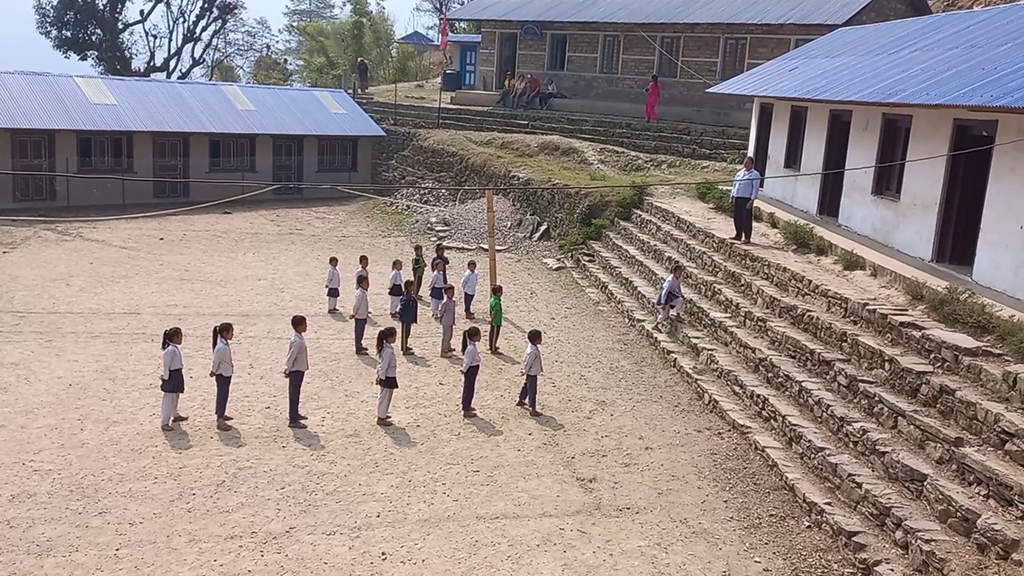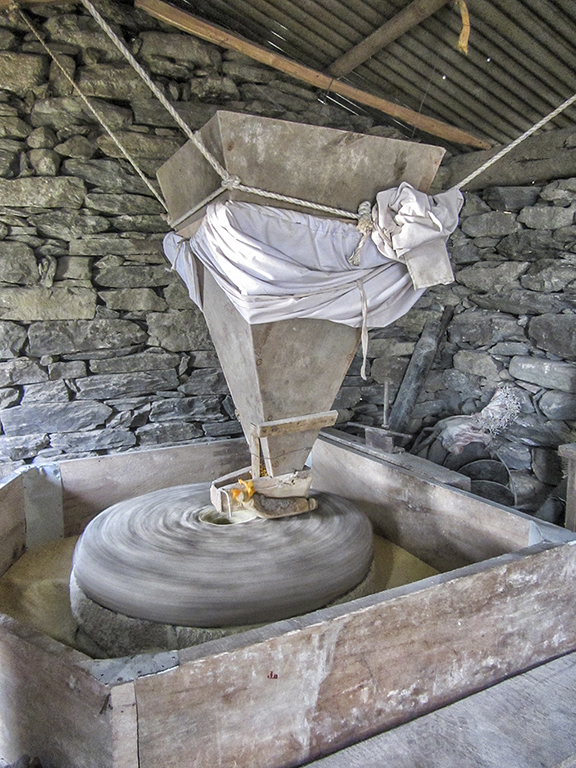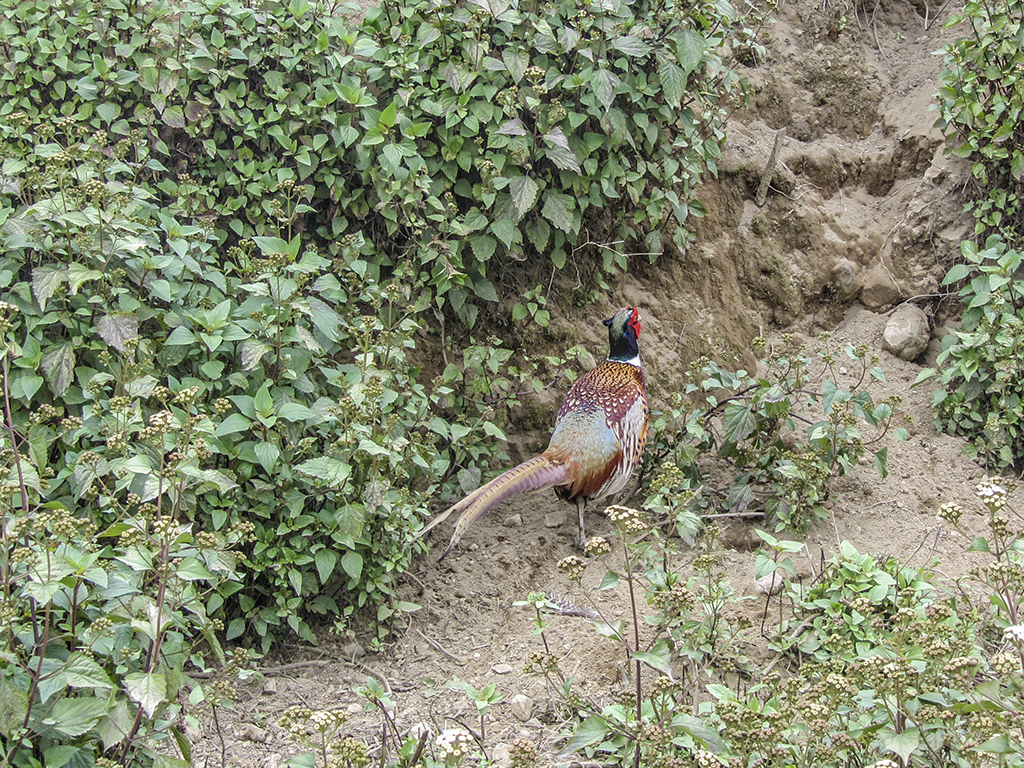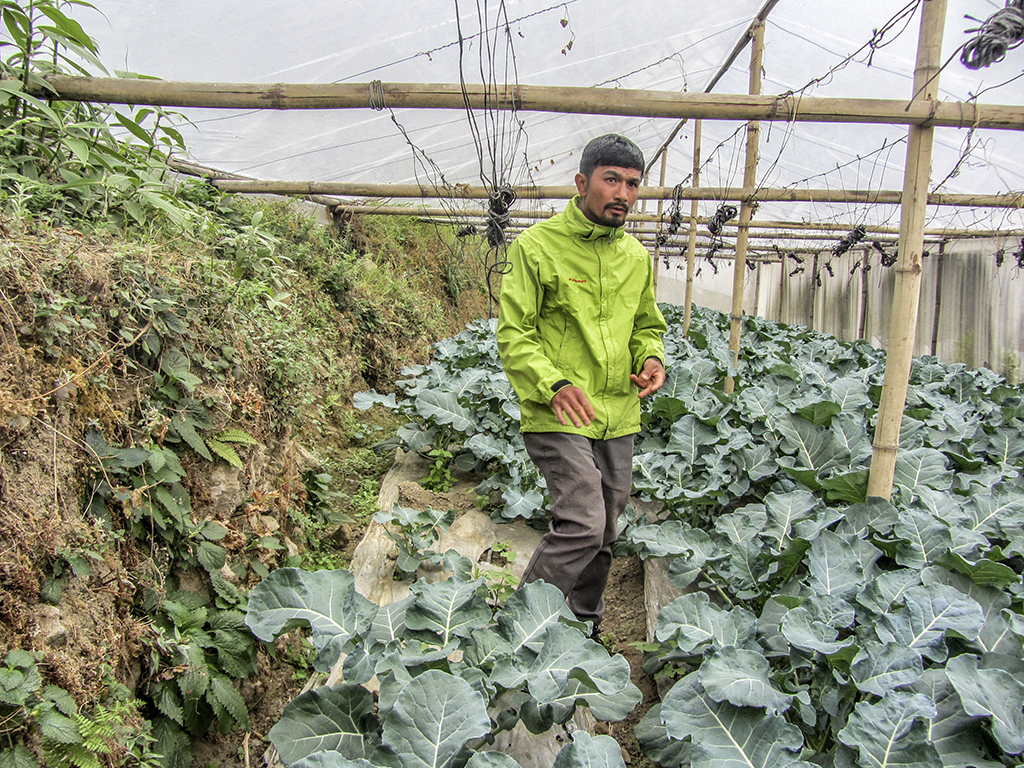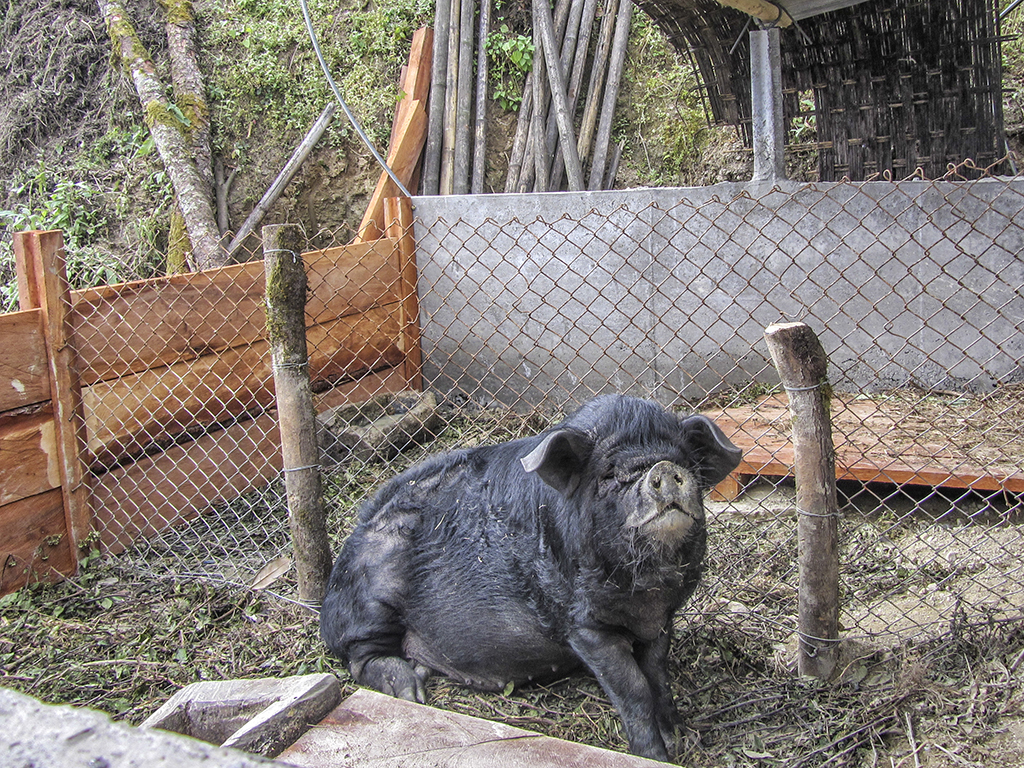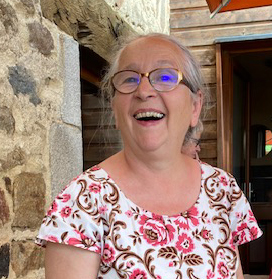Pancha and Jase accompanied us and Dilu Rai provided the French translation for the various meetings in the village, which was invaluable.
First of all, we were surprised by a marked change in the landscape and geographical organisation of the village.
Numerous houses have been built alongside the road, along with a variety of shops: tea-shops, small grocery shops and lodges. Places that used to be directly accessible from the track are now out of the way.
We met Mayor Asherman and several of his deputies on several occasions. He was present during several visits (to the dispensary, to the farm) and our discussions with him were rich and very open.In the 4 schools, the welcome was warm and touching, with more flower necklaces than our necks could hold…
The small schools at Bodu and Rimku, which cater for the younger children, lack equipment and teaching materials. At the Thulodhunga school, the teachers would like to have computer equipment… but the headmaster is asking us above all to maintain the support for the teacher’s salary that ANUVAM has been paying since this year.
This school would like to integrate the higher level classes (classes 11 and 12) with teaching in agricultural technology.
At the dispensary, we were welcomed by the medical team (Suku Bari and Raj Kumar), who showed us around and explained how things worked. The mayor and deputy mayor were present, as were several villagers.We had a lively discussion, and it emerged that we would welcome help in purchasing medicines to supplement those supplied by the government. Anuvam therefore continues to budget €500 per year.
The pig farm is just getting under way, with only the 2 males already installed. We also visited the 9 greenhouses, which occupy part of the farm’s 3 hectares and enable a number of vegetables to be produced in advance of the season. All the crops are grown without chemical fertilisers or pesticides.
The team is currently considering the construction of an oil mill to meet the needs of the villagers (scarcity and rise in the price of oil given the current economic situation), but this would be a very large investment and would require outside help…
This young farming team is highly motivated and dynamic, and seems to have a good grasp of crops and livestock. Starting up the farm was not easy in the context of the Covid pandemic, but good results have already been obtained, which augurs well for development in the years to come if the health and economic situation becomes favourable again.During these ten days in the village, Sokal, who welcomed us in and around his house, was a very attentive host, and his cooking was of excellent quality! The atmosphere was joyful with all his family and that of Kumar, his neighbour and assistant. Many villagers greeted us as we wandered through the village, and Marc received many expressions of friendship…Even if the needs for the development of the village far exceed the means of an association like ours (water supply, electrification, development and improvement of the track, etc.), our support and helping hand remain precious in the eyes of our friends and this continues to justify the existence of ANUVAM.

